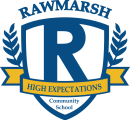Curriculum
German

Mrs Dodds
Faculty Leader – Languages
Subject Staff
Mr Elsom
Miss Wiggett
Ms Cadman
The Subject Way
Firstly, to teach students the vital skills they need to achieve their full potential and gain the very best grades they can. Secondly, to teach students how each subject relates to the wider world, incorporating the life skills they will learn.
It is our belief that knowing how what you learn links to the wider world brings a subject to life and therefore improves overall understanding and engagement.
Curriculum Intent
“If you talk to a man in a language he understands, that goes to his head. If you talk to him in his own language, that goes to his heart.” – Nelson Mandela
The MFL curriculum is designed to empower students to draw maximum cultural, personal and economic benefit from the role of global citizenship. Through the promotion of oracy and the expansion of vocabulary and literacy we seek to enable students to communicate confidently and without barriers in a wide range of social settings and media.
In order to do this the MFL curriculum is sequenced to allow knowledge and skills to develop simultaneously and progressively. By revisiting and enhancing key language skills in different settings students develop their ability to recall, analyse and evaluate usage and at the same time build independence and resilience.
Our Curriculum enhances our students’ cultural literacy and experience by deepening exposure to non-Anglophone ideas, texts and customs in a variety of topics, settings and locations.
How we intend to remove barriers
“The limits of my language mean the limits of my world.” – Ludwig Wittgenstein
Our curriculum is designed to remove barriers through the promotion of literacy and oracy. We reinforce listening and reading skills through the embedding of skills and techniques such as the Prise method for reading comprehension. Through this students not only learn how to decipher key points and facts in texts from all backgrounds, but eventually how to interpret feelings, emotions and points of view. In addition, students learn how to express themselves and their opinions effectively and appropriately in a range of social contexts, empowering their social mobility.
How we develop skills for learning
We develop learning skills, teaching techniques for the acquisition of vocabulary and the application of grammar. Students learn skills for memorisation, recall and fluency through our layered approach to revisiting topics. Vocabulary is acquired and enhanced through exposure to a range of texts, oral and written in a variety of divergent topics, settings and genre. Students analyse texts to discern emotion and feeling as well as evaluating their own learning skills, such as revision and rote learning techniques.
How we foster personal attributes
We encourage the development of personal attributes such as effective listening and self-expression. Through the learning of other languages, students develop personal and cultural empathy. In doing so they become socially confident and economically mobile.
How we intend to enrich student experiences and broaden the horizons of students
Our department has a key role to play in broadening student horizons by exposing them to the lifestyles, literature and culture of speakers of French, German and Spanish, not just in Europe, but across the globe. We reflect the multi-ethnic and multi-cultural diversity of world languages. We enrich student experience through the exploration of foreign media both in the classroom and as part of our enrichment activities. We organise cinema and restaurant visits, visits from external speakers and links with university departments. Wherever possible we encourage visits abroad, for example to Amiens for the Christmas Market, the Opal Coast, the Rhineland and Berlin.
Our Curriculum
In Year 9 we look at school in Germany. We start by developing the ability to give opinions on subjects, timetable and school rules. We learn three tenses present, perfect and future) in order to describe exchanges, trips and personal successes. Later we learn how to describe our free time, hobbies and cultural lives. We describe the family and relationships within and without it. Finally, we look at daily life and routine, our homes and our eating preferences.
In terms of culture, we compare the differences between the German and English school systems. Students are exposed to examples of German music, TV and film and examine German food and eating habits.
By the end of year 9 a student will typically be able to combine four tenses (present, imperfect, perfect & future tenses as appropriate to the task) to give opinions and produce descriptions. They will be able to listen to and understand spoken passages using familiar vocabulary but in a range of unfamiliar contexts, picking out the main points and details. They should take part in spontaneous talk and respond to unpredictable parts with more complex sentences and ask questions where appropriate in conversations.
In Year 10 we mainly concentrate on Theme 2; Local Area Travel and Holidays and extend it from describing holiday plans and experiences to making descriptive comparisons between towns and regions here and in a German speaking country, looking at popular German tourist destinations. We build on work done around holidays by extending and deepening the topic in order to be able to describe ideal holidays (using the conditional tense) and also holiday disasters.
We look at weather too in a variety of tenses and also spend some time on practical, transaction situations that one may encounter on a visit to Germany, for example at a railway station or in a hotel. Later we explore Theme 4: World of Work which includes job applications, job descriptions and case studies. Students describe their future career aspirations and discuss the value of learning a foreign language.
In cultural terms, students look more deeply into tourism in the different regions of Germany as well as the norms of formal and informal language.
By the end of Year 10 a student should typically be able to demonstrate recognition of themes and ideas in longer passages and texts (including authentic sources) including some covering contemporary and cultural issues. They should be able to use combinations of up to five different tenses (present, perfect, future, imperfect and conditional). In speaking they should be able to be spontaneous and interact naturally using pronunciation and intonation which would be understood by a native speaker.
The first term of Y11 is given over to the study of GCSE Theme 5: International and Global Dimension. Here students learn to discuss and convey opinions on some of the big questions of the day in German. These include primarily talking about the environment and what can be done by individuals and schools to protect it. We also learn to talk about ethical shopping and volunteering for good causes. Later we discuss major events, sporting and cultural, and discuss their effects both positive and negative. The rest of the year is spent honing examination skills.
In cultural terms we re-visit in depth some of the major events of the German calendar, for example the Berlin Marathon, Oktoberfest and the anniversary of German reunification.
By the end of the course it is hoped that a successful student will be able to draw conclusions and interpret meaning in a range of longer passages on contemporary and cultural themes. They will be able to initiate and develop conversations and discussions independently, using language creatively to exchange a wide range of thoughts and opinions. They will recognise implicit meaning in a wide range of longer texts, including extracts from literature. Students will demonstrate ability in using a wide variety of tenses (including less common tenses such as the conditional and pluperfect) and complex grammatical structures with secure control.
Find out more
If you would like more information about our curriculum, please contact the school using the details on our contact page.
Our Subjects at KS4
CORE SUBJECTS
EBACC SUBJECTS
OPTION SUBJECTS



